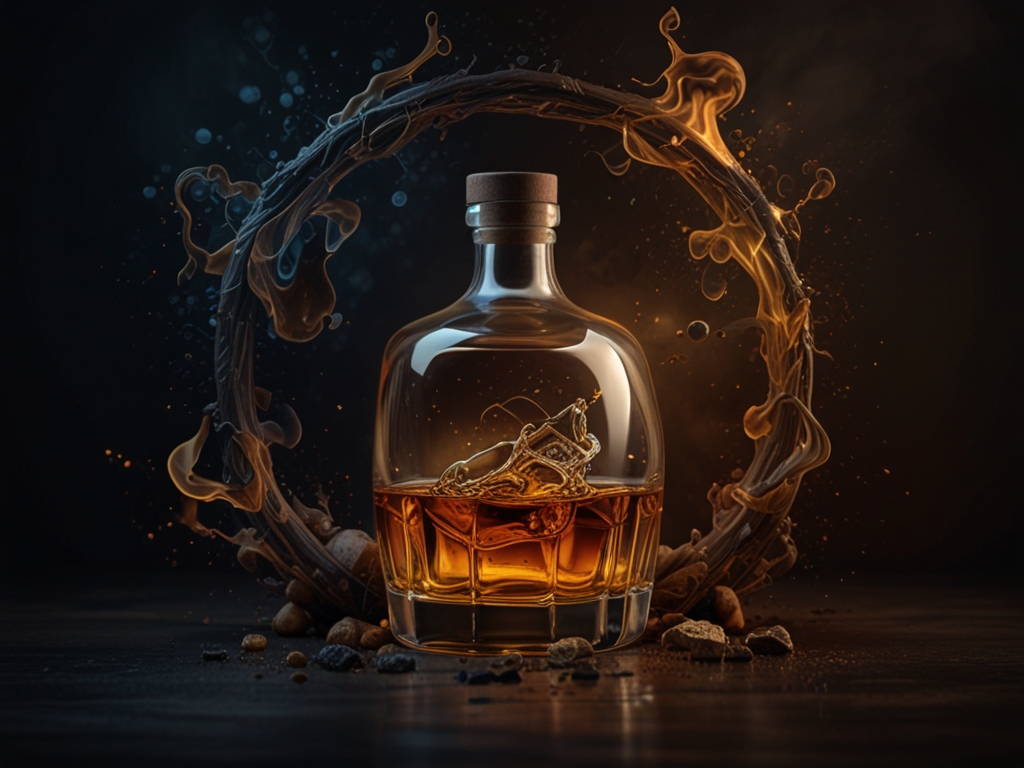
Whiskey Immortality: Does the Golden Spirit Ever Lose Its Charm?
Whiskey, the amber-hued spirit, has a timeless allure that has captivated enthusiasts for centuries. But does whiskey ever go bad? Understanding the intricacies of whiskey preservation is not just a fascinating journey into the world of whiskey, but also empowers you to make informed choices about your collection.
Defining 'Bad' in the Whiskey World
When discussing whiskey going 'bad,' we must clarify what we mean. Unlike perishable products, including beer and wine, whiskey can't spoil and make you sick, thanks to its higher alcohol level. So, rest assured, you're safe to sample that old bottle you discovered in your grandparents' vintage liquor cabinet. However, while whiskey may not spoil, its flavor might not remain constant forever.
The Stagnant Elixir: Whiskey Maturation
Whiskey matures in wood barrels. Once in the bottle, it becomes a stagnant entity with no additional fermentation. Therefore, a 20-year-old Pappy Van Winkle bottle last year should taste about the same as one bottled 30 years ago, assuming everything about the ingredients and ageing process up to the bottling time were identical.
However, whiskey only ages further in the bottle. That said, small factors can affect its taste.
The Four Horsemen of Whiskey Apocalypse
Here are the main factors you want to avoid or at least minimize to preserve your whiskey's flavor:
- Oxygen: Air is whiskey's primary nemesis over time. Oxidation, the interaction between the bottle's air and the whiskey's surface, will eventually change its flavor. A bottle of whiskey can last a year or two if it's mostly full but less than six months if it's under half.
- Leakage: Unlike wines, which are stored on their sides to keep their corks from drying out, whiskey bottles should be stored upright to prevent leakage and evaporation.
- Sunlight: UV rays from sunlight aren't an immediate concern like beer, but they can change whiskey's color over time.
- Heat: Heat can cause evaporation and loosening of the seal, mainly concerns for whiskey preservation.
In conclusion, while whiskey may not 'go bad' traditionally, its flavor can change over time due to various factors. As a whiskey lover, your understanding of these factors is key. It empowers you to preserve your precious bottles and ensures that each sip offers the rich, complex flavors that make whiskey such a beloved spirit.
Note: This article is based on our expert's experiences and research. Always drink responsibly.
Disclaimer: The information provided on MaltMarvels.com is intended for educational and entertainment purposes only. We strive to provide accurate and up-to-date content, but we cannot guarantee the accuracy, completeness, or reliability of the information presented. Our reviews and opinions are based on personal experiences and preferences, and individual tastes may vary. We encourage responsible drinking and remind our readers to always consume alcoholic beverages in moderation. MaltMarvels.com is not liable for any consequences resulting from the use of information obtained from this website. Please drink responsibly and legally according to your country's laws.
Leave a comment